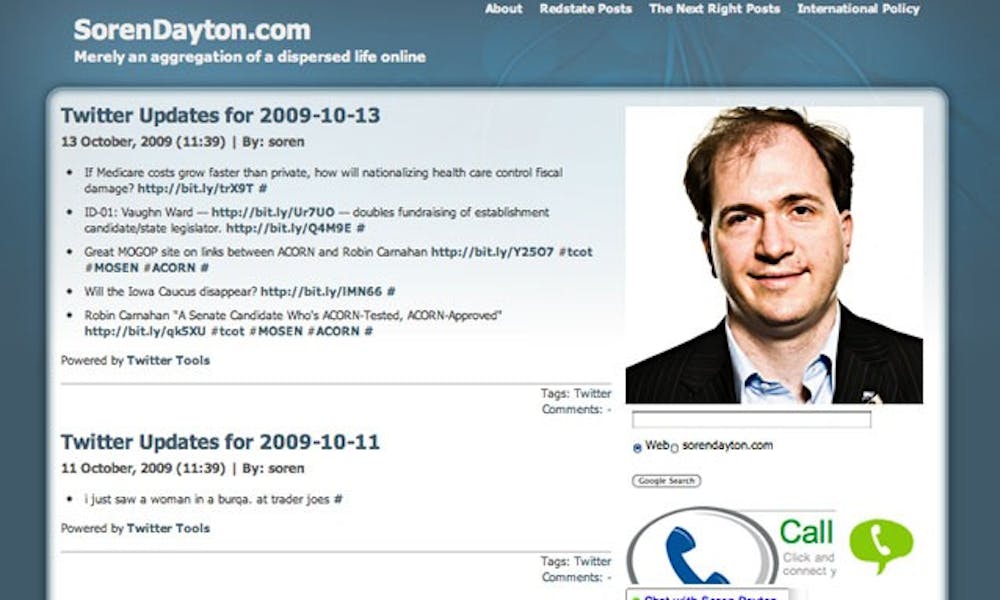Read blogs? Your average demographic is a married, 45-year-old man making more than $90,000 a year.
That’s what new media and political consultant Soren Dayton told students Tuesday night. Duke Political Union, Connect2Politics and College Republicans brought Soren to Duke to speak about new media and its impacts on current political campaigning.
New media—using channels such as e-mail, blogging and Twitter—has dramatically transformed campaigning and the mechanics of politics, said Dayton, an online communications expert and blogger. Dayton had previously worked on the 2008 presidential campaign for Sen. John McCain, R-Ariz.
“People can find out things in a way they couldn’t before,” Dayton said. “New media makes it where information can be spread all around and that’s why it’s so powerful.”
Because online access to information has grown substantially, people can find out how the world works and are not restricted to what their televisions or newspapers tell them.
Dayton said the explosion in new media—especially in blogging—in relation to politics could be summarized in three basic steps. First, people get valid and usable information about something. These people are then able to start passing this information around. Consequently, other people look at this new information as well, and the cycle continues.
Campaigns must now adjust and take advantage of new media to stay in the running or ahead of other opponents. New media was a big part of the 2008 presidential campaigns, Dayton said. He added that the Democratic Party’s use of new media recently increased dramatically, but the Republican Party’s use of new media is steadily growing as well.
Dayton said that although e-mail is the primary and most influential new media source, blogging has also become an important part of politics.
Dayton emphasized the importance of political figures getting involved in the blogging world and reaching out to the technological community. E-mails and blogging are the easiest way to reach out to those who are both interested and potentially interested in supporting a political candidate. New media is also cheaper than purchasing television advertising time and more efficient than postal mail.
“Politicians need to use new media to get their message out and gain support from the public,” Dayton said.
Dayton also talked about how new media is affecting other media sources, such as print and television media.
“The whole media thing is collapsing,” he said.
Senior Chelsea Goldstein, Duke Student Government senior policy adviser and DPU treasurer, said Dayton has a unique perspective on elections and how new media has revolutionized the way campaigns and politicians work.
“Soren is at the forefront of this type of innovation,” said Goldstein, a member of The Chronicle’s Editorial Board.
Liz Mair, who is also an online communications expert and blogger, was scheduled to speak along with Dayton, but canceled at the last minute because of a work emergency.
Get The Chronicle straight to your inbox
Signup for our weekly newsletter. Cancel at any time.

